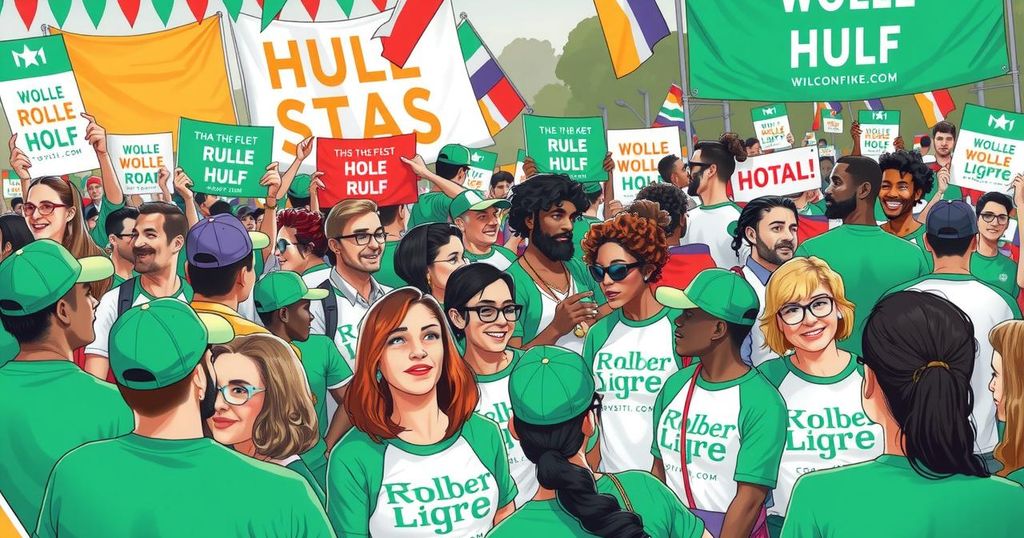Saipan Rally Requests ICC to Release Former Philippine President Duterte

A rally in Saipan by over 250 supporters of former President Rodrigo Duterte called for his return to the Philippines and criticized the ICC’s arrest warrant. Organizers claimed political motives behind his detention, while critics emphasized the legitimacy of the ICC’s actions due to alleged human rights violations during Duterte’s presidency. The event underscores ongoing divisions within public opinion regarding accountability and sovereign authority.
A recent rally in Saipan called for the International Criminal Court (ICC) to facilitate the return of former Philippine President Rodrigo Duterte to the Philippines. Organized by Marie Zayko and Roderick Lopez, the event attracted over 250 attendees and also celebrated Duterte’s birthday. Zayko expressed her desire for Duterte, currently in the Netherlands, to return, alleging that the circumstances surrounding his detention are unjust and politically motivated.
Lopez acknowledged the strong support at the rally, stating, “To our friends here supporting President Duterte, we just keep praying so that we can bring him home to the Philippines,” indicating that further demonstrations may follow. Zayko reiterated her appeal to the ICC, asserting that Duterte was a beneficial leader during his presidency: “Duterte is a good president. Please, he helped a lot of people. So much people that he helped, please release him.”
Duterte’s arrest stemmed from an ICC warrant issued due to allegations of crimes against humanity connected to his controversial drug war policies. Supporters, such as Joven Merin and Jerry Soriano, expressed their gratitude for Duterte’s contributions to society. Merin described his past involvement in Duterte’s programs aimed at rehabilitating drug users, emphasizing the former president’s positive impact on Filipino community restoration.
Another supporter, Romeo Malasarte, criticized the police actions leading to Duterte’s detention as a breach of national sovereignty, highlighting the broader implications of such arrests. He stated that it transcends political affiliation, emphasizing the dignity of all Filipinos. Conversely, critics in Saipan argued for the ICC’s authority to act against Duterte due to allegations of extrajudicial killings that occurred under his administration, with Joselito Espino insisting that victims of these actions deserve justice.
Critics like Darwin Gonzales noted that the ICC’s procedures were lawful, especially considering that the Philippines is no longer a member of the ICC, asserting that Duterte should be afforded a fair trial. He remarked, “As long as the right process will be implemented, I am okay with it,” reflecting a belief in the importance of due process in legal matters regarding Duterte.
The rally in Saipan reflects the divided opinions surrounding former President Rodrigo Duterte’s detention by the ICC. Supporters praise his leadership and demand his return, citing political motivations behind his arrest, while critics underscore the allegations of human rights abuses that justify the ICC’s actions. This situation exemplifies the complexities of defending sovereign rights while addressing alleged crimes against humanity. The discourse continues, highlighting the significant implications for justice and accountability in the Philippines.
Original Source: www.rnz.co.nz







